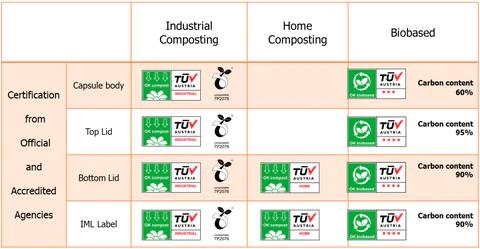Learning the new compostable speak
As New Zealand moves to compostable food packaging there are some new concepts and terms to learn. We’ll help you get a handle on the local lingo.
What does compostable mean?
Composting can be thought of as a human process - the cooking of natural materials to break them down into natural elements. The right environment for composting is plenty of air, plenty of water and lots of sustained heat. Microbes (nature's little chompers) thrive in that environment, make lots more microbes and get really hungry. They eat up the natural materials in bio-plastics and turn it into water, carbon dioxide and biomass. There is no toxic residue just good stuff.
Compost is organic stuff full of nutrients that can be put straight back into the environment.
What does biodegradable mean?
Everything on earth biodegrades. It's nature's own waste management process. Biodegradable materials can break down and be eaten up by natural microbes. Biodegradable doesn’t necessarily mean safe as it can leave potentially toxic stuff like chemicals in the mix.
The question is how long does something take to biodegrade? Even an iron bridge will eventually biodegrade over time. Plant based plastics (like those used in coffee capsules) can be labelled as biodegradable. They are meant to break down more easily than regular plastic and be safer for the environment. However, microbes can’t live in landfills as air, water and heat are not present, so ….
Research suggests, that when we chuck used capsules in landfill, biodegradable plastics take the same amount of time to break down as regular fossil-based plastic.
What is the difference between biodegradable and compostable?
Everything that is compostable is biodegradable, however not all biodegradable material is compostable.
"There is a lot of confusion with biodegradable and compostable, they're two completely different things. We can't take biodegradable… it breaks down but it still can be toxic." - Colleen Wastney, Greenwaste to Zero, Nelson
Why is certification important? How do I check?
Your compostable packaging supplier must be able to produce certification from a reputable third-party laboratory.
Certification is what tells you that you can trust claims made about bio-based, biodegradable or composting.
All components of Coffee Capsules 2U capsules are certified Biodegradable, Compostable (industrial composting) and Biobased by TÜV Austria (an internationally recognised certification laboratory). Our capsules comply with the OK BIOBASED and OK COMPOST certifications awarded by TÜV Austria / Vincotte as a finished product.

Will compostable capsules biodegrade in landfill?
Yeah, nah! The answer is "not within the time frame most people think!"
Very little biodegradation occurs in most modern landfills. The reason for that is, they are built to keep air and moisture out. These are two factors for biodegradation to occur.
Modern landfills are designed to preserve their contents rather than biodegrade them.
What does industrially compostable mean?
Our capsules are made of a bio-plastic that will compost in a commercial composting facility only.
Industrial composting facilities actively manage the air and moisture content and maintain consistently high temperatures (over 55 degrees, much higher than can be achieved in your home compost heap).
Compostable capsules that are correctly processed can be back in nature as compost within 3-6 months.
What does home compostable mean?
Packaging certified as home compostable can be placed in a home compost bin. It will decompose and become organic-rich soil within a reasonable period of time.
Some parts of our capsules will break down in your home compost, like the coffee and the paper lids. The other bits will not, well, not in our lifetime at least!
Our goal is to introduce a coffee capsule that is as good as our current ones and is home compostable in New Zealand conditions.
The might of European industry is working away on home compostable bio-plastics and they will get there relatively quickly.
A word of caution if you are considering trying coffee capsules with claims to be home compostable. Check the certification as it must clearly state “HOME” otherwise you'll be shovelling the things around in your compost pile for life.
So there you have it. You are all ready to go in the new world of compostable packaging. Rip into it New Zealand!